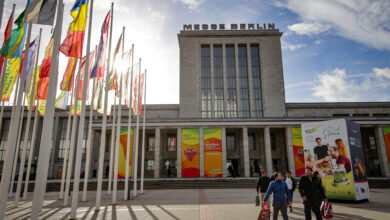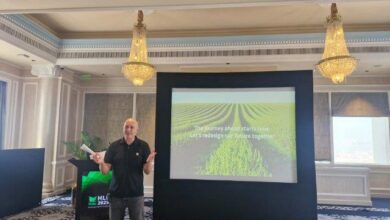Made in Israel Agricultural Produce – Now Also in Bahrain
Israel has Received Official Approval from the Bahrain Authorities to Export Fresh Agricultural Produce and Propagation Material


following the signing of trade agreements with the united arab emirates, now, in a matter of weeks, bahrain will also be able to enjoy the flavor of fruits and vegetables made in israel
minister of agriculture and rural development, alon schuster: “israel is an international powerhouse in the field of agriculture, and proof of this – throughout the world israeli produce, recognized for its quality, is in high demand. in the summer, we laid the groundwork for signing agreements with arab countries, and we immediately began to open the marketing channels to the uae and bahrain, so that israeli farmers can benefit not only from the local market but also from the thriving markets in the gulf states. this amounts to a significant contribution to the israeli economy and our foreign relations, and serves as further proof that israeli agriculture is a real national asset.”
following a series of meetings and coordination between the minister of agriculture and rural development, alon schuster, and the director general of the ministry, dr. nahum itzkovich, with their colleagues from the ministry of agriculture and marine resources of the kingdom of bahrain, subsequent to the signing of the agreement between bahrain and israel last september, israel received official approval from bahrain to export fresh agricultural produce and propagating material (including seeds) from israel to bahrain. the ministry of agriculture hopes that the growers will start to export their produce to the additional and attractive destinations in the persian gulf over the course of the current month (january).
in recent weeks, a team from the plant protection and inspection services at the ministry of agriculture has been studying the relevant legislation in bahrain to ensure that the finest israeli products that reach the retail shelves in bahrain will meets all the country’s import requirements, including phytosanitary requirements to prevent the introduction of diseases and pests into bahrain, as well as requirements related to pesticide residue on fresh produce destined for human consumption. additionally, at the end of the in-depth study, the regulatory conditions were incorporated into the export system of the plant protection services, and professional instructions for testing the produce were forwarded to all the ministry’s inspectors.
the exports are the product of a visit by a large israeli-american delegation, that included dr. nahum itzkovich, director general of the ministry of agriculture and rural development, to manama, the bahrain’s capital city, to sign an interim agreement establishing diplomatic relations between the two countries and implementing the peace declaration signed by washington. during the meetings, agreements were signed to begin establishing collaborations and develop new ideas for the two countries, which paved the way for a cooperation agreement on the export of agricultural produce from israel to bahrain.
this export agreement follows the agreements signed with the united arab emirates last november for the export of agricultural produce from israel. among the fresh agricultural produce that will be shipped from israel will be fruits, vegetables, spices, flowers and seeds. the opportunities to export to a new destination that is geographically close to israel open up new possibilities for israeli exports. exports to bahrain, as well as to the emirates, will allow farmers to develop and strive for new markets, which the ministry of agriculture hopes will bring a satisfactory level of profitability to farmers and increase and strengthen local agriculture.
bahrain is a small island nation located in the persian gulf, between saudi arabia and qatar. despite being a small country with a population of about 1.7 million, it is considered one of the largest economic hubs in the middle east, mainly due to its huge oil reserves and its open and diverse economy that is supported by with government, which has fueled the development of its banking, tourism and industrial sectors since 2000.
the kingdom of bahrain boasts the fastest growing economy in the arab world. this is due to the current developments in the field of oil trade in the region, whose impact has yet to be fully appreciated. bahrain’s oil industry accounts for about 30% of its gdp, but due to uncertainty and depletion of the country’s oil reserves, the government supports and fosters a free and diverse economy. bahrain has also begun to encourage foreign companies to establish their persian gulf headquarters in the country and to invest in local economic initiatives and projects.




